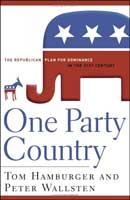
I was in San Francisco for the weekend and opened up the Sunday Chronicle to find this full-page story. It scared me beyond imagine.
Numerous rumors abound about what President Bush might do in his lame duck years. One particularly fearsome report came from an Israeli press interview with the head of their IDF that their military command thought it likely that either they or the U.S. would knock out Iran's nuclear program before the 2008 U.S. elections. And then I saw this article which never did say why an attack such as the one described would occur; it only talked about the mechanics of the attack itself. And the anticipated responses from Iran and other countries in that region.
Holy shit! That's like the air war in Bosnia.
It's unclear how many targets U.S. bombs would need to hit, and how often. "Could very well be 2,000, 2,500, 3,000 after you begin to add in all the other things like air bases, missile storage sites," he said. "The nonnuclear part is expanding." Cordesman estimates the number of sorties by bombers and cruise missiles would range from several hundred over a week's period for strikes focused on nuclear and missile sites to as many as 2,500 over a period of months for wider strikes including those targeting Iran's retaliatory military capability.
In the section discussing the aftermath of attacking Iran, every conceivable reaction was discussed: cutting off oil production and otherwise withholding oil getting to Western clients and America; sinking oil transports in the Gulf; bombing and shutting down oil production in Iraq; attacking Israel; funding surrogates in the Middle East and in America to harm American, Israeli and European interests; etc.
Jeez! This is hardly calm Sunday morning bedroom reading. One reader was quoted as saying:
Go for it George! As a former owner of a major league baseball team, you know the importance of this end-of-season "Axis of Evil" three-game series. A swift win over Iran will not only offset the devastating, poorly played loss to Iraq, but will give you much-needed momentum going into the big game with North Korea. But don't forget you still have that make-up game with Afghanistan.I'm more freightened than amused. Some have said that in Bush's State of Denial (pun intended) he's getting progressively mentally deranged and might really do something this shocking and destructive. And unless we - all of us voters - effect a change in the makeup of the cadre around him, it's likely that something dramatic - if not an attack on Iran than something else - is going to happen shortly after the November elections. At the least, increased troops to Iraq.
Personally, I've never thought that Bush was a mental case. Rather, I've believed that he was and is an underrated quick-study on most subjects related to campaigns and politics and the nuances of power - but with an unethical slant. He's not a good speaker nor a policy wonk. But he's mastered a lot of the other tasks of the politics of the presidency. His training came from harsh and cynical experts like Atwater and Rove. And the influence of their ideas and practices have matured into some formidable problems for Democrats in the forthcoming elections amongst them is his aggressive and stubborn mind-set.
In "One Party Country,"
 by Tom Hamburger and Peter Wallsten, both of the LA Times, the effects of chipping away at Democratic strongholds like what used to be the block vote of African-Americans, Hispanics and Jews, and the effects of jerrymandering the electoral redistricting have had, and will have, significant negative effects for Dems. These and the systematic and targeted funneling of taxpayer dollars into faith-based entities where reciprocity rules, and investing in database development so far beyond what Democrats have funded thus far have enabled Reps to have the advantage in turning out small targeted and targetable segments of the electorate that, when turnout is low, can win elections.
by Tom Hamburger and Peter Wallsten, both of the LA Times, the effects of chipping away at Democratic strongholds like what used to be the block vote of African-Americans, Hispanics and Jews, and the effects of jerrymandering the electoral redistricting have had, and will have, significant negative effects for Dems. These and the systematic and targeted funneling of taxpayer dollars into faith-based entities where reciprocity rules, and investing in database development so far beyond what Democrats have funded thus far have enabled Reps to have the advantage in turning out small targeted and targetable segments of the electorate that, when turnout is low, can win elections.And turnout has been low thus far this year. Perhaps we on the Internet, the bloggers, the Daily Kos readers, all of us, can channel our efforts and effect a change on the turnout figures for November. But we haven't thus far in the primary elections and we'll need to do something more effective.
Any suggestions?
